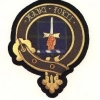
vs-eh?
Members-
Posts
718 -
Joined
-
Last visited
-
Days Won
2
vs-eh? last won the day on June 29 2010
vs-eh? had the most liked content!
Profile Information
-
Location
A place to live, a place to grow...
Recent Profile Visitors
6,449 profile views
vs-eh?'s Achievements
Newbie (1/14)
19
Reputation
-
ErictheMedic started following vs-eh?
-
vs-eh? started following ErictheMedic
-
June 26, 2010 Dear Mr. Smitherman; I was somewhat surprised as I read your recent comments with regards to a “Fire/ems” model of prehospital care. I must say that, in your previous role as Minister of Health, you won my respect. I admired the manner in which you arrived at difficult decisions using evidence and facts from a variety of sources. To read that you have based this service altering decision on an opinion piece developed by a special interest group such as the IAFC, without input from all participants, was disheartening, to say the least. I would respectfully offer the following facts for you to consider: The EMS average response time to high priority calls is 7 minutes and 32 seconds, not 12 minutes as you stated. More than half of all cardiac arrest have the EMS team apply their defibrillator first, before other first responders.. In 50% of high priority calls, EMS arrives before or at the same time as Fire. 5.6% of all cardiac arrests in Toronto survive to discharge not 2.5% as you were quoted. In 26.7% of arrests in Toronto, the paramedics are able to restore a heartbeat before arrival at the hospital. One of the difficulties in determining response times is that various agencies record their times in a variety of ways, making comparisons difficult. Fire starts the clock when the pumper leaves the station; EMS starts the clock when the call is received. If you are truly concerned with improving outcomes, there are other avenues. In some European countries, ALL licensed drivers are legislated to be current in CPR, effectively making their entire population First Responders, not being wholly dependent on allied agencies such as Fire and Police. If the purpose of the exercise is truly to get an Advanced Care Paramedic to the patient in a minimum of time, there are much faster and safer methods than on the back of a pumper with four Fire fighters. Less than 5% of emergency calls require Advanced Life Support. The most effective method of providing this service is to place the ALS medics in rapid, small, first response vehicles. Some jurisdictions use motorcycles, others, small, agile cars. In this manner, an ALS medic can arrive within the shortest time frame and begin care while assessing the scene and determining the type of support needed. You mention cost savings in your speech. Research has shown that brain death occurs in 4-6 minutes. We know that we must get a responder to the scene within this time frame to be effective. We also know that the fire department strives for a 4 minute response time and have their halls conveniently placed appropriate distances to achieve this. The question is why? Insurance actuaries have calculated that a 4 minute response time is as effective as a 7 minute response time and does not result in more property loss. This is reflected in the premiums calculated for both homes and businesses. Accordingly, one can conservatively estimate that 1/3 of fire halls could be decommissioned with no resultant loss of property. Imagine the savings here. Consider further, if you will, the fact that Fire Departments run at a staff to:management ratio of 4:1 whereas EMS averages 9:1. Which system is more cost effective? Consider that Fire deployment is based on a static model simply because businesses and property don’t move. EMS is based on a dynamic model, vehicles and staff moving hourly with the population they serve as commuters flow into and out of the city. Consider that Fire has effectively bargained that each fire truck MUST have four Fire fighters around the clock, regardless of call volume. EMS upstaffs for peak hours and downstaffs during slower times, again presenting a savings to the tax payer. I do find it interesting that the “Fire Act” states that a department MUST have a fire prevention officer but fails to mention that it must have full time Fire fighters likely because fully 75% of Ontario Fire fighters are volunteers. Consider that Fire fighters retire at 25 years of service; have a mandatory retirement of age 60 with an enhanced pension; a “killed on duty” clause which provides their families with free education for their children, a sizable monetary compensation and a partially publically funded funeral; consider that legislative changes lobbied by the Fire Associations has resulted in a “presumptive” legislation that accepts that Fire fighters succumbing to certain cancers are presumed to be job related; that heart attacks occurring within 24 hours of a response are considered to be job related and subject to full work related compensation; consider that Fire fighters are educated and trained at the cost of the employer and that paramedics train at their own cost prior to employment; consider that Fire fighters in certain cities are allowed to work 7 twenty four hour shifts per 28 days, with a built in 8 hour “rest” period and get the rest of the month off. I do not begrudge the Fire fighters any of the preceeding benefits but I find it curious that the paramedics are excluded from these same benefits. If the City of Toronto merges the two services, surely the paramedics will be brought up to par with the Fire fighters? Where then, is the savings that you mentioned? I have attempted to highlight for you some of the more obvious problems with a U.S. styled, Fire/EMS system. An entire tome could be written describing the differences between the two cultures, the differences in training, education, liasing with Base Hospitals, differences in their respective approaches to patient confidentiality, approaches to treatment of patients, medical directives, continuing medical education, etc. I would be pleased to meet with you and discuss some of these at your convenience. Once again, know that I have long admired your approach to medical problems in your previous role as Minister of Health and certainly appreciate the fine work you completed in that role. I find these latest comments poorly researched and certainly out of character for you. I must express my disappointment in your presentation. Respectfully, Dr. Martin McNamara. CCFP/EM As an aside... I had the extreme fortune over the G20 week-end here of working with many RCMP EMRT medics. Great people, who at times wouldn't even let me carry my own bags, ha. Seriously though, some of the nicest people you will ever meet and great hosts for the assignment I had.
-
We had the ITD's removed from the car's months ago. We were involved in the study that docharris quoted and the doctors spoke to us often and we recieved feedback on individual cases. In general, the consensus was that while ROSC's increased, survival to discharge did not. Ergo, more money wasted on transports, ICU beds, etc without a meaningful result for patients returning home with a "quality of life".
-
Oh hello... While not overly complex with regard to assessment and subsequent treatment, this is literally a one in a million patient that you likely will never see. Come with me my friends... You are called to the basement of a gym during a spinning class, where a 30'ish year old female is complaining of CP and SOB. As you roll your eyes and yet again think BS, further updates dance across your screen. The updates insist that (per caller) this is not a cardiac/pulmonary event and in fact this pt. has "stiff person syndrome" and requires versed to attenuate her circumstance. Hmmmmm, you say to yourself as you pull up to the scene. You lumber down 3 flights of stairs (calling Jesus all sorts of names in the process) and walk into an active spin class (wit da fly hunnies in tow) and are eventually greeted by the fire department performing the standard treatment on all patients - NRB blasting in the patients face and the circle of life (kidding boys and girls). As you intrude into the circle, you discover the following... A young, athletic woman who is conscious, alert, and oriented in a full body tonic/spasm. She is literally stiff as a board. She is perfusely diaphoretic and appears quite uncomfortable. Her anxious sister hands you a letter. The letter is from a neurologist from a nearby university hospital that states the the patient has "stiff person syndrome". It briefly outlines signs and symptoms, treatment modalities, and the doctors name and contact information. The treatment is either midazolam or propofol. The versed tx is an inital 5mg dose IV with follow up doses q 10 mins if the activity doesn't cease. Honestly I don't remember the propofol dose, as we don't carry it and the patient basically always gets the versed. The patient has no other medical problems and is currently on diazepam and bacofen daily for the same condition. She states 5mg of versed breaks the activity almost always, and she has only had follow up doses once. What is a paramedic to do? Patch of course... The patch doctor had not heard of this syndrome, and neither has any doctor I've spoken to since. She agreed to the 5mg of versed, but denied any follow up doses and to let the hospital decide subsequent treatment should it be required. My partner had already started an IV, vitals, and drawn up 10mg of versed as I finished the consult. Her vitals where to be expected with a person in 10/10 pain. Five minutes following the versed, she relaxed. Five minutes after that she walked up the 3 flights of stairs with our assistance (thank god, would have been a huge hastle for all involved, not the least of which was the patient). One hour following that, while we where still waiting for an ER bed (LOL... We did take her to a neuro hospital just in case) she wanted to leave. I d/c'd the IV and she walked out with her sister AMA. She was cool, she said nothing else could be done and she would follow up with her neurologist. She was currently undergoing plasmaphoresis as a treatment as well. You guys can google it if you care. Just an interesting case to liven up an otherwise routine set of shifts. Oh, and apparently the syndrome was originally called "stiff man syndrome", but those damn hippy liberals and PC elitists changed it to "stiff person syndrome". PHFTTTTTTTTTTTTTTTTTTTTTTTTT
-
I think the iPad is going to fail. It's too much of a niche market. Sure, you will always get the "gotta have it" people, and apple fan boys. But as for mainstream penetration, I don't think it will be the force that the iPod/iPhone is. It is simply not different enough, especially with the new iPhone that will likely be released soon after the iPad. The only way that I can see it becoming mainstream is if the 3G version can act as a phone (with BT or speaker phone only) and will be subsidized by providers. That and they probably should have had "Snow Leopard" and not the iPhone operating system. EMS applications? No way. Even if it was "military speced", it is all proprietary. And LOL @ Steve Jobs wetting is pants about how "great" the web browsing is... No flash support? Phfffft....
-
http://www.amazon.com/Timex-Ironman-50-Lap-Digital-T5E371/dp/B000936JLM The above is mine.
-
Oh really? They are stating in the article that TORONTO FIRE is auscultating this patient's lungs? Really? Seriously? With what? Wow... Man...I'll comment more later.
-
Probably around 10 or so, with a 60/40 split between dead and alive people (PAI). I hope medic82942003 is trolling or something, otherwise that is fucking brutal.
-
I assume this is a copy/paste... When you reply, tell her she spelled her named differently at the beginning and end of the email. ... End your response with... I'm on to you, akflightmedic
-
Pocketbook Drug Reference & Advice ?
vs-eh? replied to alexzcarter's topic in Education and Training
http://www.amazon.com/Tarascon-Pharmacopoeia-Classic-Shirt-Pocket-Pocket/dp/0763774391 All you really need. I also have an Iphone if need be, but for basic day to day, Tarascon is all I have used. I still have the 2008 version, time to get the new one. -
Third watch was the best/most realistic show on the EMS side that I have seen. I couldn't even get through the first 10 minutes of the "Trauma" series premier, and have not watched a single minute since. PS - Third watch is the also the only EMS/emergency service related show I have watched with any regularity.
-
Ahem... Canada... That is all... It still amazes me the discussions that persist on the need of EMS education in the USA. These discussions don't happen in Ontario (and I would imagine the rest of Canada). You don't hear people trying to rationalize away the need for a 2 year college diploma to be BLS in Ontario. The need for a further 1-2 years to be ALS or critical care. You don't want to do the education? You aren't in EMS, period. There is NO ONE educated in Ontario in paramedicine in the last 10 years (well, there are a very small minority with less but anyway) that DOES NOT have a 2 year college degree MINIMUM to work BLS in the province. The fact of the matter is that the vast majority of the people that post on this forum would never be able to work in Ontario, or a large portion of Canada without totally restarting the educational process. Oh, and save the "arrogant Canadian" post that I'm sure will come up.
-
Agreed. I cannot recall one cardiac arrest that I have done that I actually saw a bystandard doing chest compressions. However, fear not! In Toronto you have a plethora of people willing to dial 911 for any number of perceived problems as they are driving by on the highway at 140km/h, rolling by on a streetcar, or viewing you for the 50th floor of their condo. Forget this whole jazz of actually approaching the person, asking if they need ANY help (let alone an ambulance, and staying with them should they need help. Nope you just have the self satisfaction and a story to tell your family how you "helped" someone today. Oh ya, and when we get on scene and find nothing, and do a call back to get more info from the caller? They are LONG gone and removed from the area. I HATE CELL PHONE CALLERS! (Yes mad)
-
For those who are unaware... https://roc.uwctc.org/tiki/tiki-index.php Huge prehospital research study that has been ongoing for a number of years. We were involved in all aspects, with the hypertonic saline trails being stopped earlier this year. I received notification that all ITD's are being removed by Nov. 6th, and to stop using the device effective immediately. Also analyze early vs. late is out, and monitors will be changed according soon. The study was stopped on Sunday. I was quite surprised, and so were the doctors judging by the memo that was sent out. Long story short is that while the ITD did increase pre-hospital ROSC, there was no statistically significant change in hospital discharge. Same goes for early vs. late analyze. Good CPR and early defib still remain the true staples of cardiac arrest. Recently I did ACLS and was told the next round of studies may include being given blinded preloads during cardiac arrests, becuase of the overall lack of evidence in traditional cardiac arrest pharmacology. Three rounds of saline and out boys and girls...






